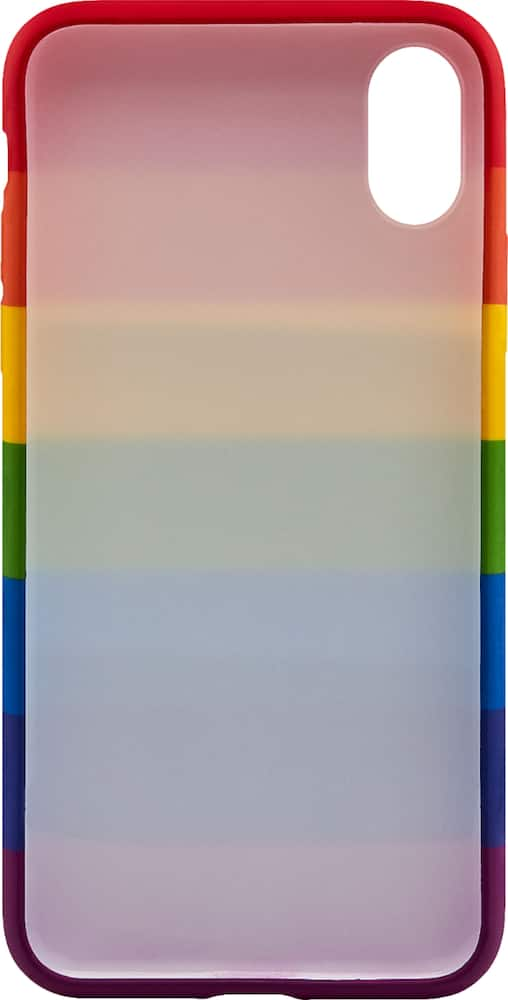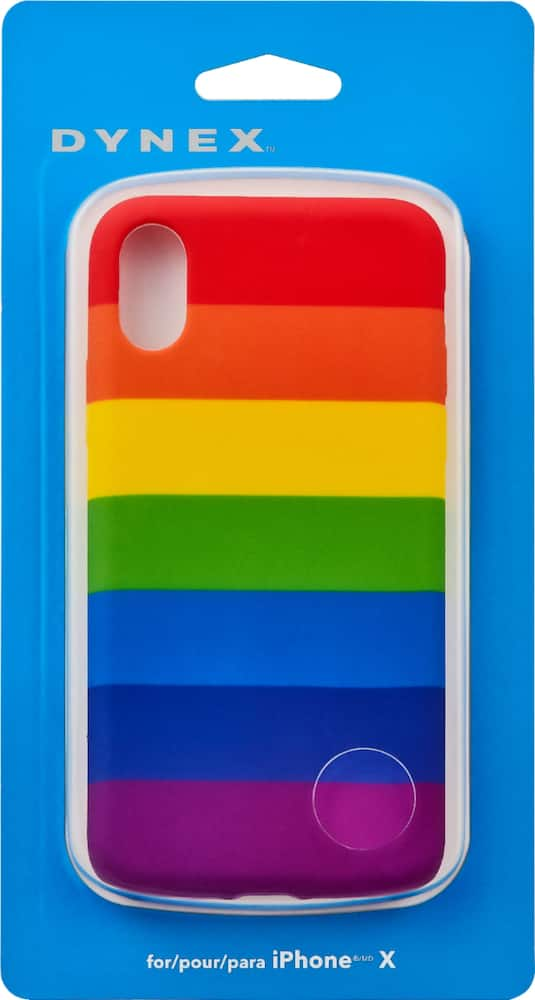dynex - case for apple iphone x and xs - rainbow stripe
SKU: EN-S10108





dynex - case for apple iphone x and xs - rainbow stripe
Indeed, security in general is a major concern with connected cars. That's an area where Google, with a vast, global computing network, already has a lot of expertise. Better safety, better efficiency Google's self-driving cars have driven more than a half million miles -- so far with no accidents while the cars were under computer control. Google said it believes self-driving cars can cut accident rates since computers don't get sleepy or distracted, and already there are indications that self-driving cars can be safer than the average driver. Google expects the technology will significantly reduce the number of people killed in car accidents, currently 1.2 million people per year worldwide.
Richard Wallace, a researcher with the Center for Automotive Research, suggested that a crashless world could be within reach, "You can do radical things in automotive design," he said "Why do you need all this steel and zillions of airbags? A better solution is that the car can't crash."Shucking steel safety cages would make cars vastly lighter, And that would dramatically reduce their fuel consumption, he said, Google believes other efficiency gains could come by squeezing more cars onto existing roads and perhaps by fostering new ride dynex - case for apple iphone x and xs - rainbow stripe sharing practices..
A world of networked cars would spur the rise of sophisticated urban transportation management in which computer control systems detect traffic trouble spots in the data and reroute vehicles accordingly. Some cities, including Eindhoven in the Netherlands, Lyon in France, and Singapore, and are already experimenting with this concept. Will drivers willingly yield control to a computer, to peel away the security of being ensconced in thousands of pounds of metal? Maybe not for the current crop of drivers, but they won't be on the roads forever.
Is it safe? The safety of the system will depend on communications technologies called V2V and V2I that link vehicles to each other and to road infrastructure, With V2V, cars constantly broadcast location and speed information and gather that same information from other vehicles, That lets cars constantly evaluate potential threats, especially when combined with local road data such as whether a physical barrier separates the car's traffic lane from oncoming traffic, Even with human drivers, V2V could warn that it's not safe to pass dynex - case for apple iphone x and xs - rainbow stripe or that cars in front are braking to avoid an accident..
Adding V2I into the mix means roads could warn drivers of school zones, accidents, or traffic signals that are about to turn red. A freeway could warn of accidents, cars in blind spots, or trucks merging into a driver's lane. V2V and V2I also offer self-driving cars an abundance of trustworthy, useful information. "We really believe in car-to-car technology as the technology for the future," said Pim van der Jagt, managing director of the Ford Motor's research center Aachen, Germany. Early versions of the technology might be broadcast-only devices that aren't even in cars -- key fobs and smartphones that help cars keep track of their surroundings, perhaps, Wallace said. He expects V2V-equipped cars to go on sale in five years.
- new cases for iphone xr cases - leather case
- case for apple iphone x and xs - clear/chevron rose gold
- presidio clear + glitter case for apple iphone 6 plus, 6s plus, 7 plus and 8 plus - clear/glitter/bella pink
- commuter series case for apple iphone 7 plus and 8 plus - black
- paris white map iphone case
- the ballet shoes online outlet
- ballet leotards eu
- ballet shoes size 4 infant
- dance sterling silver necklace, ballet shoe sterling silver necklace, tap shoe sterling necklace, sterling silver necklace qb102
- sale * twinkle toes * nude-pink hand-embroidered ballet flats with bells, crystal beads, and wrap around ties
- ballet shoes keyring, handmade personalised initial gift, antique silver tone, ballet gift, dancer keychain, dancer keyring, bal
- More...

